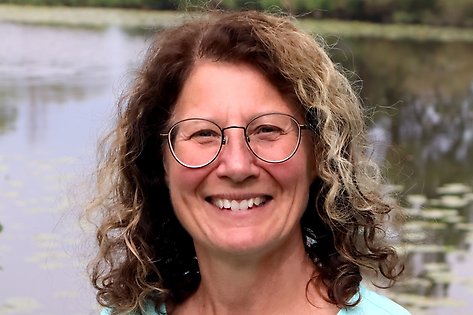How to assess risk of harmful chemicals in our water? An interview with Professor Karin Wiberg
Access to water is essential for all life. For good health and a healthy environment, clean water is fundamental, but unfortunately we find unwanted chemical substances in rivers, lakes, and even tap water. Professor Karin Wiberg has spent many years deepening our understanding of chemicals in the environment. Together with colleagues, Wiberg is now leading a workshop at Uppsala Health Summit 2023 to raise awareness of the problem and to work together to reduce the presence of harmful chemicals in the environment.

Karin Wiberg, Professor, Department of Aquatic Sciences and Assessment, Section for Organic Environmental Chemistry and Ecotoxicology, Swedish University of Agricultural Sciences (SLU)
The environmental goals require healthy and clean water from source to tap. But water contains environmental pollutants that are persistent, mobile, and toxic and slip through technical and natural barriers. A well-known example of this is Kallinge, which is a locality situated in Ronneby municipality in Sweden, where large amounts of PFAS were detected in the drinking water and eventually found in the bodies of the people living there.
The pollutants that have been monitored so far have different properties than PFAS. It is therefore important to raise the level of knowledge about PFAS and similar substances in order to know which ones pose a threat. Like PFAS, most chemicals are not acutely toxic at typical levels found in the environment, but may become so after long-term exposure and then have a negative impact on human health and the environment.
In this context, antimicrobial chemicals are also important to discuss, as they also slip through today's technological and natural barriers. This has given rise to questions about antimicrobial resistance, where the One Health perspective is central", says Professor Karin Wiberg, Department of Aquatic Sciences and Assessment, SLU.

What do you hope the workshop will contribute?
This workshop will raise awareness that many of the chemicals we use in everyday life threaten the quality of our water and can harm human, animal, and environmental health. We also want to discuss what could be done about the problem and what tools are available to assess different situations. We would like to go deeper into some issues, such as risk assessment methodology. Therefore, we have invited Hans-Peter Arp, who is leading a large, multidisciplinary EU project on persistent and mobile substances in the environment, and Elin Lavonen, who advocates a certain risk assessment methodology", says Professor Karin Wiberg.
What are the main challenges related to chemicals in the aquatic environment?
Knowing what to look for and having methods to identify, monitor and analyse them at an early stage in the environment and in drinking water. This is the environmental analysis part. But then the question is what to do with all the data. Here, ecotoxicological and human health risk assessments are major challenges. It will be very interesting to discuss these issues and listen to the different perspectives of the participants", says Professor Wiberg.
Since we consume drinking water continuously, even trace amounts of chemicals can lead to exposure that might cause harm to humans, such as gene mutations, cancer, neurotoxicological effects and metabolic disorders.
Improved wastewater treatment and drinking water quality are needed to fulfil European directives related to water. Research, business, and water policy need to keep pace for the sustainable use and reuse of water and this workshop plays an important role in this context", says Professor Karin Wiberg.
